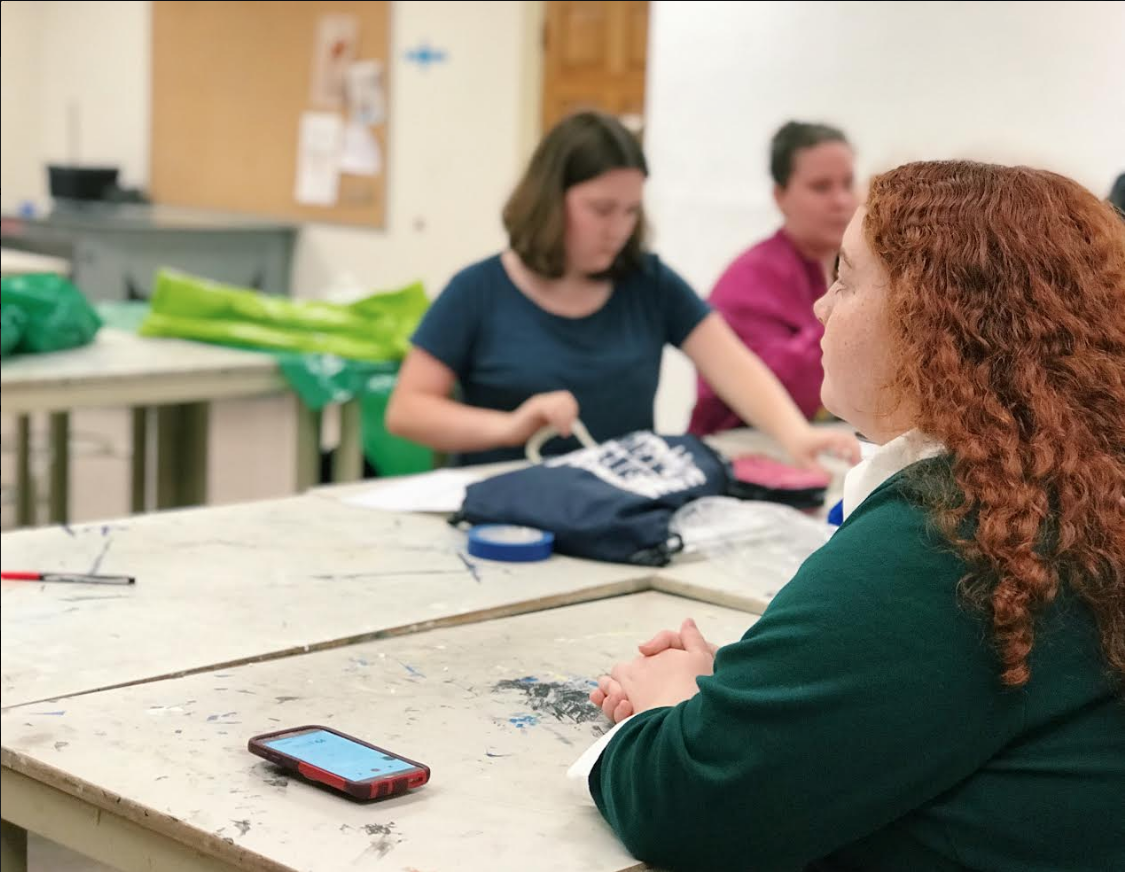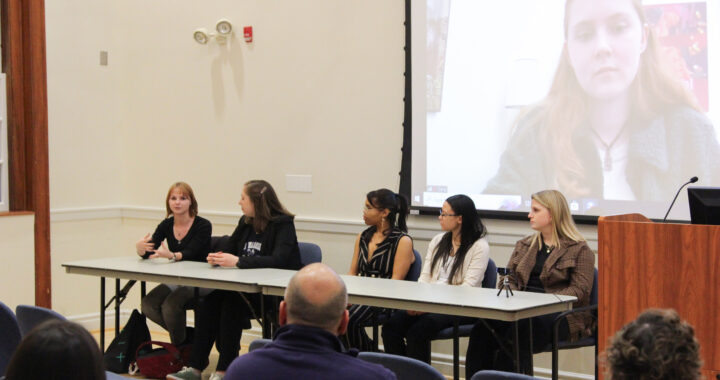Policy requires inclusion of recording statement on syllabi
3 min read
Chelsie Natalia
By RILEY DOHERTY
Staff writer
This semester marks the first time faculty members are required to put their recording policies on their syllabi.
The “Policy on Recording Class and Distribution of Course Materials” was created to regulate student use of a professor’s audio in a classroom setting. The policy was first proposed in August of 2016, approved by three different UMW offices in November of 2017, and put into effect in December later that year.
According to the document, there are eight general procedures involving the recording of classes. Simplified, the policies are:
1. Instructors must state in their syllabus their policy on audio based recording in the classroom, 2. Recording of class meetings, discussions, and other course materials is prohibited unless stated on class syllabus and/or permission is given by the instructor in class (written or verbal), 3. If permission is granted to a student, the instructor must notify the rest of the class, 4. Students with approval from the disability office must tell the professor that they will be recorded in advance and must also provide an accommodations letter, 5. Recordings cannot be shared with others, 6. Recordings cannot be sold for financial gain, 7. Students must destroy recordings at the end of the semester unless they have permission to keep them, 8. Students who violate any of these rules can be punished by the Office of Judicial Affairs and Community Standards.
“Any class can be recorded and because the devices are so small you wouldn’t really know if someone is recording you,” said Associate Provost Dr. John Morello. “It can put the faculty member or student in a potentially dangerous situation, because the recording might not necessarily accurately reflect the context that lead up to whatever was said.”
For provost Dr. Nina Mikhalevsky, the recording policy has been a long time coming.
“[Mikhalevsky] was a faculty member in 2012. [She] initially asked that the issue be considered,” Morello said.
Mikhalvesky’s proposal was rejected twice by the academic affairs committee, once in 2012 and once in 2016. But, after her promotion to provost, she was able to get the policy in front of the Faculty Affairs Committee, who enacted the document. This lead to a revision of the faculty handbook that included the recording policy as a required part of a syllabus.
According to Morello, there was no specific defining moment at UMW that necessitated a recording policy. “There have been problems at other universities where a faculty member [or student] said some things in class … and the recording had been passed on, and the faculty member had been recorded without their knowledge,” he said. “That’s a violation of their right to privacy.”
Morello explained there is no set punishment for recording policy violations and that infractions are dealt with on a case-by-case basis. “If it was an innocent oversight or mistake on the part of the student that might be treated differently than if a student did something more aggressively … to perhaps harm people in the class or put them in bad light,” he said. “It’s really on a case-by-case basis much in the same way honor code violations are dealt with based on what was the violation and did the individual take responsibility for their actions.”
Some students were concerned about the requirement that students destroy the recordings at the end of the semester.
“Students could use [the recording] as reference, especially if they are taking back-to-back courses with the same professor,” said sophomore creative writing major Bryce Anderson.
Others are in support of the policy.
“If you have recordings on your personal computer, that’s your own problem if you get caught,” Parker Siebenschuh, a history and historic preservation major.
“It’s [the professors’] right to not want to be recorded,” said sophomore studio art major Andy Lin.
Despite the requirement that a recording policy be put in syllabi, not all professors have done so.
“Has it stopped students from recording when there not supposed to? I don’t know,” Morello said, explaining that it is still to early to tell if having the policy on the syllabi has made a difference. Morello said that that there have been no cases of students violating the policy.
Ray Tuttle, the director of the Office of Student Conduct and Responsibility, said that as of yet there has been no need to test the efficacy of the policy. “No violation of that policy has ever been reported to my office,” he said.











